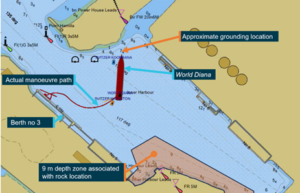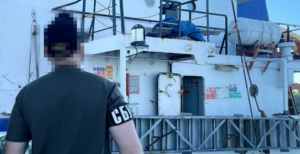The UK government has issued a guidance note to sellers of vessels and brokers, with further information and tools, regarding the sale and brokering of second-hand vessels to third countries.
The government’s guidance, issued by the export control joint unit and the department for business and trade, highlights that it will help to mitigate any risk that second-hand vessels sold become part of Russia’s ‘shadow fleet.’
It advises ship brokers to implement a system of ‘red flags’, which are laid out in the guidance, into their due diligence processes.
The UK warns that any non-compliance with UK sanctions is a serious offence and punishable through large financial penalties or criminal prosecution.
As it is said, this aims to support businesses in tailoring ‘due diligence’ and ‘sanctions compliance policies and procedures.’
They are also advised only to conclude deals where they are confident that a process of cross-checking of these risk indicators provide reassurance that compliance thresholds are met.
The government says that since the implementation of sanctions including the oil price cap, by the Group of Seven Plus (G7+) Coalition, Russia has spent considerable resource on efforts to circumvent. This includes purchasing second-hand tankers which it can run to service its oil exports, independent of any G7+ services.
Some of these tankers may be old (15+ years) and sold at a significant premium above the historic market price for these types of tankers given Russia’s urgent requirements for vessels.
In the guidance it is reminded that it is important to conduct risk based ‘know your customer and counterparty’ due diligence to identify the ultimate beneficial owner of the proposed buyer or the true intended “end-user” of the vessel.
The ultimate beneficial owner of the potential buyer, where the intended vessel purchase is for sanctions circumvention purposes, is unlikely to approach sellers directly or be named as such on paperwork. Instead, the ultimate beneficial owner often uses a layered approach to conceal their purchase.
Appropriate due diligence might include obtaining the contact details, source of funds and copies of identification of the buyer’s beneficial owner or owners.
As UK’s trade department says, this information could also be verified against third party databases, media and market intelligence to ensure that they are the true end-user or ultimate beneficial owner.
The UK government in its guidance lists in detail the ‘red flags’ that shipbrokers should look out, mentioning that those involved in the sale of vessels to third countries, especially tankers, should be vigilant with respect to the risk indicators outlined in the list.
The whole text of the guidance can be found here.



